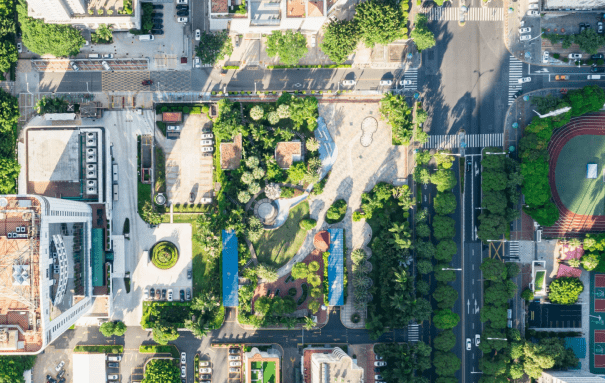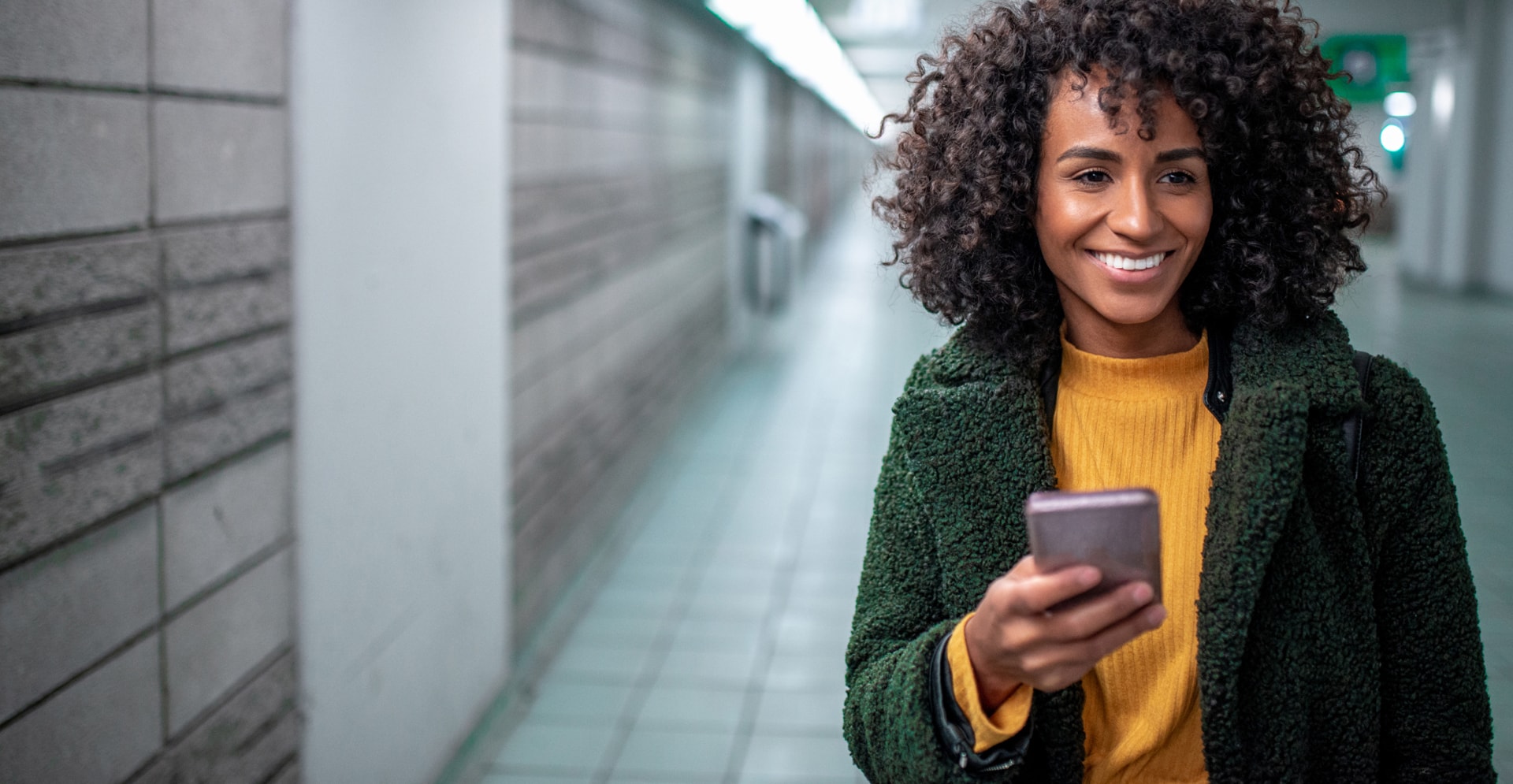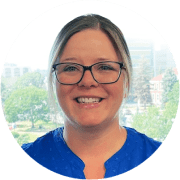Join us as we explore the city of Red Deer, located between Calgary and Edmonton in Alberta, Canada. This episode of Better Cities by Design delves into the intersection of innovation and tradition as the city tackles one of the most vexing urban challenges: parking. Host Davion Ford chats with Amy Fengstad and Amara Heppell from the City of Red Deer to uncover the insights, hurdles, and successes encountered during the parking system upgrade.
You have not accepted cookies yet
This content blocked. Please accept marketing cookies. You can do this here.
Subscribe on your favourite platform
With a population of just over 110,000, Red Deer boasts a rich cultural heritage and a forward-looking attitude. Despite its historical charm, Red Deer faces modern urban issues, particularly with its aging parking infrastructure. The city’s old single-space parking meters were becoming increasingly unreliable and inconvenient. Arcadis’ digital product HotSpot has revolutionized parking in Red Deer by allowing residents to pay only for the time they use, offering digital payment options, and providing transaction records for increased security.
Tune in to hear Amy and Amara discuss Red Deer’s parking system overhaul. Learn about the city’s proactive stakeholder engagement, the ways they addressed community concerns, and the balance between embracing new technology and managing public apprehension. Discover how these innovations are reshaping urban life in Red Deer and what the future holds for this progressive city.


The Arcadis global podcast
Better Cities by Design

DIGITAL PRODUCTS
HotSpot
Simplify your commute with HotSpot: a comprehensive digital payment solution for parking, public transport, taxis, and more.
Episode transcript:
We recognize that not everyone is able to listen to our podcast, which is why the show is also available in text. If you would prefer to read what happened in the show instead of listening, please click the link below for the episode transcript.
-
Read full transcript
00:05
Davion Ford
Welcome to Better Cities by Design, a podcast brought to you by Arcadis, where we talk to changemakers who are working to make our cities better places for people to live, work, and play. I'm your host, Davion Ford. In this episode, we are headed to the heart of Canada, to the vibrant city of Red Deer. We're going to learn how folks there are dealing with an aspect of city life that can be really frustrating, namely parking. I'll talk to Amy Fengstad and Amara Heppel from the city of Red Deer, and they're going to walk us through the insights, challenges, and the triumphs of upgrading the city's parking system.
00:52
Davion Ford
Nestled between the cities of Calgary and Edmonton, the city of Red Deer in the province of Alberta, Canada, has an estimated population of just over 110,000 people who are known to be very friendly and to lead very active lifestyles.
The area where the city sits was first inhabited by First Nations peoples, including the Plains Cree, Stoney, and Blackfoot, who were there long before the first European traders arrived in the late 18th century. The name of the city comes from a mistake on the part of European settlers. The Cree people call the river there the Waskasoo Seepee, which means Elk River.
At the time, Europeans sometimes called the North American elk a red deer, mistaking it for a species they were familiar with from Europe. As a result, the river and subsequent city came to be called Red Deer. But Red Deer is a modern city like any other in North America with a thriving economy, a vibrant cultural scene, and a bustling downtown.
And like many North American cities, some of the infrastructure in the downtown area has gotten a bit old over time. This was particularly the case for the city's parking system, which had started to become less reliable and less convenient for residents. But it turns out it's no small task to upgrade a parking system, especially given the fact that this is something that impacts people's lives in a very tangible and visceral way.
For more on this, here is Max Noël, who is a Customer Success Manager at Arcadis.
02:30
Max Noël
Parking is one of those aspects of city life that people take for granted. That is, until it stops working for them. Now this could be anything from feeding money into a machine that doesn't register the payment, to realizing that you've put in way more money into the machine than you even needed to. Also, older parking meters usually require coins, which many people don't carry on them in this day and age. Residents of Red Deer were experiencing some of these issues, which is why we at Arcadis have partnered with the city to modernize the parking system using our digital product, Hotspot.
With Hotspot, people in Red Deer only pay for the time they actually park. Hotspot is also a facilitator of digital payment options, such as credit cards or the digital wallet. This also provides people with additional protection because then there's a record, a digital record of each transaction, which can then be looked up in the event that someone has accidentally paid too much.
And this has been a really successful project in Red Deer. This has been demonstrated by how quickly the citizens of Red Deer have adopted the new platform.
03:33
Davion Ford
To learn more about how the city of Red Deer is using Arcadis' Hotspot technology to transform their parking system, I'm elated to welcome to the podcast, Parking and Licensing Supervisor for the City of Red Deer, Amy Fengstad, and Senior Communications Consultant, also with the city of Red Deer, Amara Heppell.
03:59
Davion Ford
Hello, Amy and Amara. Welcome to Better Cities by Design.
04:03
Amy Fengstad
Hi, Davion.
04:04
Amara Heppell
Hi, Davion.
04:05
Davion Ford
So can you both briefly introduce yourselves and talk about your roles there in Red Deer?
04:12
Amy Fengstad
Sure. My name is Amy Fengstad. I am the Parking and Licensing Supervisor for the City of Red Deer. So basically I'm responsible for anything associated with our parking or licensing program. So for today's discussion, I look after all the technology associated with parking and kind of looking at what that future growth looks like and how that connects with our city.
04:31
Amara Heppell
And my name is Amara Heppell. I'm a Senior Communications Consultant with the City of Red Deer, and my focus is really on having conversations with our community through public participation, community engagement, and making better decisions municipally from that citizen voice.
04:47
Davion Ford
Great. So we're here to talk about some of the great work you're both doing in Red Deer to modernize the parking system in the city’s downtown. Before we get into what you've been changing, I'd first like to hear from you both about what the situation was like before your efforts started. What were some of the challenges that citizens were facing?
05:08
Amy Fengstad
Yeah, we had some very old-style single-space parking meters that had been in our downtown core for a very long time. So some of the challenges that we had with that were they were quite antiquated. We couldn't get replacement parts. So sometimes when customers would put their coins in, it wouldn't register anything. And then of course, it's a meter, so it's not like you can just get your coins back. So there's some frustrations there. People did enjoy just walking up to the meter to be able to use that, but when you don't have reliable technology, then that causes a new level of frustration. I think just from the city's perspective, not being able to really use those meters for any type of data collection or decision making, and just having the unreliable parts, it led to a lot of friction.
05:50
Amara Heppell
And from a user and citizen perspective, we have people at all different stages in their journey with technology. However, many residents are used to being able to pay with an app or in a cashless way that didn't require parking cards or needing to carry cash or coins with them to be able to pay those meters. So switching to a digital solution helped meet the needs of our customers as well.
06:13
Davion Ford
And so Amy, I think you touched a little bit on this already with my next question, but I'll pose it nonetheless, which is around from a city administrative perspective, what were some of the issues that you were running into with the old system?
06:25
Amy Fengstad
Yeah, the biggest thing was not getting the replacement parts. So that was a challenge, because even though we wanted to fix them, make them operational, we couldn't. They were just that old. So it was difficult to explain that to customers when they are experiencing frustrations of, you know, I put my money in, how come it didn't register time? So it's, you know, we can't get parts. So we did hear that frequently for Red Deer to start modernizing and looking at a different system. And then with the parking cards, they're basically little cards that you could insert to the meters, and it was like a preloaded gift card, essentially, that customers could use. So again, even with those, they were cumbersome. You can only load them in certain locations and it just wasn't quite working as effectively as we would have liked. I think from an administrative perspective as well, just the inability to get more dynamic data from those pay stations, other than seeing total revenues at a certain location, we really didn't know how people were using parking, you know, 24 hours a day.
07:22
Davion Ford
So looks pretty clear from what you've described here, that you had a really antiquated system that was in real need of being updated, mainly from that perspective of the user experience interacting with the old technology. So what was the real spark though, that ignited the decision to make the change? And how did you land on the approach to address these issues?
07:46
Amy Fengstad
So really the biggest spark was that we applied for some grant funding through the Municipal Sustainability Initiative through the province of Alberta. We were successful in obtaining that grant funding, which basically prompted our ability to go ahead with a new technology base. So that's coupled with COVID. So shockingly, one of the good things that did come out of COVID was kind of the resurrection of the QR codes. So when looking at new technology solutions, trying to find something that people are now familiar with, made it a whole lot easier, so the biggest spark was finally our ability to obtain some funding to go ahead with a new technology-based solution. And then just really knowing that it was time and the system was failing us. So that was the first spark for sure.
08:34
Davion Ford
So I'd like to know what you've done so far to modernize the parking system there in Red Deer.
08:39
Amy Fengstad
You bet. So like I said, during COVID, we saw a lot of that concerns about cash handling. The QR code kind of came back. We received the funding. So what we did with that is we went out to a competitive bid process and trying to tell us what you have, what are some of the products that are out there? And so within that process, we were able to find a company called HotSpot. And so that is an app-based solution that we ended up launching in Red Deer that has a QR code capability with it. And then we coupled that with a third option for our citizens with pay stations. And so now in Red Deer, you can pay by any one of those three options. So still honoring people that like to use cash and they don't want to use an app-based functionality, we have the pay stations located on our corners. They're nicely decorated and easily visible. So we're hoping that helps. And those that want the technology, the app is fantastic in that you can do everything from the comfort of your vehicle when it's, you know, minus 40 here, and you can add time, you can end your session early if you're done parking and you get a refund on your parking session. So I think it's very convenient. It's very user-friendly, and we've really considered a dynamic choice option for our citizens with maintaining those three variables.
09:54
Davion Ford
So stakeholder engagement is always a critical aspect of this type of change in a city with the most important stakeholders being really the residents who are there who are going to be using the new parking system day in and day out. So what's the response been from them to the new system?
10:09
Amara Heppell
So with change, there's always things that you need to do as an organization to support residents from a shift from the antiquated meter system to a new app-based system. And in the fall of 2023, Amy and her team did a great job with parking ambassadors who are walking around the downtown to help people who might have just needed a little hand or someone to say, hey, do you need to help with this or to figure out what you need to do? We know this is different than what it was before. So there was some really great support that was done along the way for residents. And then not just that, we wanted to hear after the implementation, what residents were feeling about the new system, how they were feeling about it, was it making their parking experience easier or not. So in the spring of 2024, we connected with more than 4000 residents to talk about how their experience was with the new system. So we heard directly from hotspot app users and also from folks out in the community who might not have the app yet, who are passing downtown, maybe not as regularly as people that have that monthly parking pass. And we wanted to really hear from them what their barriers were, and we got a mixture of responses on that, of course. So we got residents that are using the app and monthly parking pass holders saying, yeah, this is super easy. This is great. And then we had some of our older population going, “I'm still a little bit unsure about new technology,” and then folks that hadn't been downtown in a while and were just kind of unsure and wanting to know how to plan their next steps and plan their trip downtown and if there's anything new they needed to know.
11:36
Amy Fengstad
Yeah, thanks, Amara. I'll just couple on that with, you know, our stakeholders have been very vocal in their feedback, which we actually appreciate, and we wanted to hear that. And so with part of the launch, we did also do an educational campaign. So as people got to experience the new system, we did kind of, we paused enforcement for the first couple of months just to help people and use our enforcement officers as part of our educational ambassadors. Following that, once ticket enforcement returns, we still continue with the educational campaign. So if somebody came in and said, you know, “I thought I paid, but I still got a ticket, how come?” we will look into some of those details and just figure out, you know, was it because they entered the license plate wrong? Did they just not hit, you know, the finish button on the on the app and really worked with people that way, and then, of course, would void some of their tickets just to help garner some of that comfort with the system. So from a stakeholder perspective, we're still actively working, we have a couple of sessions at our Golden Circle where we're trying to reach out to citizens that are probably at most unease with the technology and then just making sure if they really don't want to go down that road, that we do have the pay station option to continue with the traditional coin-based payment system. So we really did want to hear from stakeholders throughout this entire process, and we're still modifying and tweaking our program from there.
12:53
Davion Ford
It's really, really great to hear what you're doing with all of that stakeholder feedback. And it strikes me that it's an interesting one in particular, because it's not a question about whether the change is going to happen; the change had to happen, given the situation with the antiquated system. It's more about just making sure that as many people as possible are made as comfortable as possible with the changes that are happening around them. So my next question is actually, I have to confess, it comes from our discussion in the pre-interview, and normally, I don't have this kind of like meta aspect of a podcast episode where I refer to the pre-interview, but I'm going to lean right into it because you all told me this wonderful story about how much public interest there was in the old parking equipment. And that's just mind blowing to me. I'm sure maybe a little bit hard to believe, maybe for some of the listeners out there, but it turned out that the old meters were in high demand. So can you just share that story with the audience, please?
13:50
Amy Fengstad
Sure. So we had planned a two-day sale in our downtown for our old parking meters. So we had about 1,100 parking meters, we were selling them for $20 a piece. They're incredibly heavy. They're shockingly heavy, actually. So we did just some small social media advertisements and a couple of radio blitzes just to get people to come buy them. And we were absolutely blown away. The lineup was down the street, around the corner, two blocks, there was people waiting for hours to come and get the meters. And we ended up getting international exposure just from the parking meter sales. We had people from Ontario, BC, overseas reaching out to say, “hey, can you send me some meters?” So we were pleasantly surprised. And I think in some of the chatting with people in line, trying to figure out, you know, what brought you here? What are you interested in? And people, you know, it's just that keeping a part of history and people are going to, you know, turn it into a garden decoration or some people joked about putting the meter at their front of their house that guests wouldn't stay too long. So it was really wonderful to see and quite shocking.
14:53
Amara Heppell
And in the province of Alberta, if people aren't familiar, you know, Canada is really big and the province of Alberta is quite large, geographically speaking. And we had people driving from the two major centers, so Edmonton and Calgary, which are about an hour and a half either north or south of the city of Red Deer. And also from Medicine Hat, which is about five hours away. So we had people really committed to getting these parking meters that day of and they were lined up early that morning before we officially opened to get a piece of it.
15:20
Davion Ford
That's fantastic. I mean, in retrospect, not that making money is the most important thing, but it sounds like you could have had a fairly successful auction of these parking meters if that had been the route that you'd have gone. But this is really great. So if there's anybody out there listening that has one of these parking meters, a big shout out from us on that front. Last question, and this will be for the both of you as well, which is what's on the horizon for you both and in particular in terms of this effort to modernize Red Deer's parking system?
15:51
Amy Fengstad
So as Amara talked to earlier, we did do kind of a customer survey, so we did create kind of a what we heard report from that. So some of the pieces moving forward are continuing with the technology, so there may be some additional pay stations that we need to put out. We're still considering residential parking programs as well associated with the app, so that's where any residential neighborhood is impacted by a commercial location, be it a school or a hospital or things like that. So trying to figure out how that technology can now support the next level, our next layer of parking issues within our city. And then also just using the data. So from this point forward, we'll be able to see where people are parking in our city and kind of where those peak times are, those pressure points. And then how do we kind of finesse the technology to help with some of those demands? So being able to see real-time live data will really help frame some of that decision-making going forward.
16:47
Amara Heppell
So the what we heard report was just completed in June of 2024, and we put that back out to our stakeholders and everyone that participated in that community engagement to see if what we actually recorded in that report was true to what they told us. So that's out in the universe right now. And then from that, some of those recommendations that Amy was just mentioning, some of the things that we heard that people told us, things like pay station location, some other discussions about time, there's different things that the parking team is going back and considering what they can do to really honor what the public told us during that engagement process. So we never want to do engagement and take that information and not do anything with it, so the parking team is really committed to listening to our community and making those adjustments based on what we hear from the community.
17:31
Davion Ford
So Amy and Amara, thank you so much for your time and joining the show and also wishing you great success there in Red Deer modernizing the parking system.
17:42
Amy Fengstad
Thank you so much for having us.
17:44
Amara Heppell
Thanks for having us. It was a great chat.
17:46
Davion Ford
That's it for this episode of the show. I want to thank Amy and Amara from the city of Red Deer for joining us. Please stay tuned for future episodes as we continue to bring changemakers to the table who are driving progress in urban development. And if you haven't already, be sure to subscribe and check out our other episodes. I'm Davion Ford and you've been listening to Better Cities by Design, a podcast brought to you by Arcadis, the world's leading company delivering sustainable design, engineering and consultancy solutions for natural and built assets. You can learn more by visiting our website, Arcadis.com or following Arcadis on LinkedIn or Facebook. And please stay curious, get inspired and remember the future belongs to those who dare to make a difference in the cities we call home.




